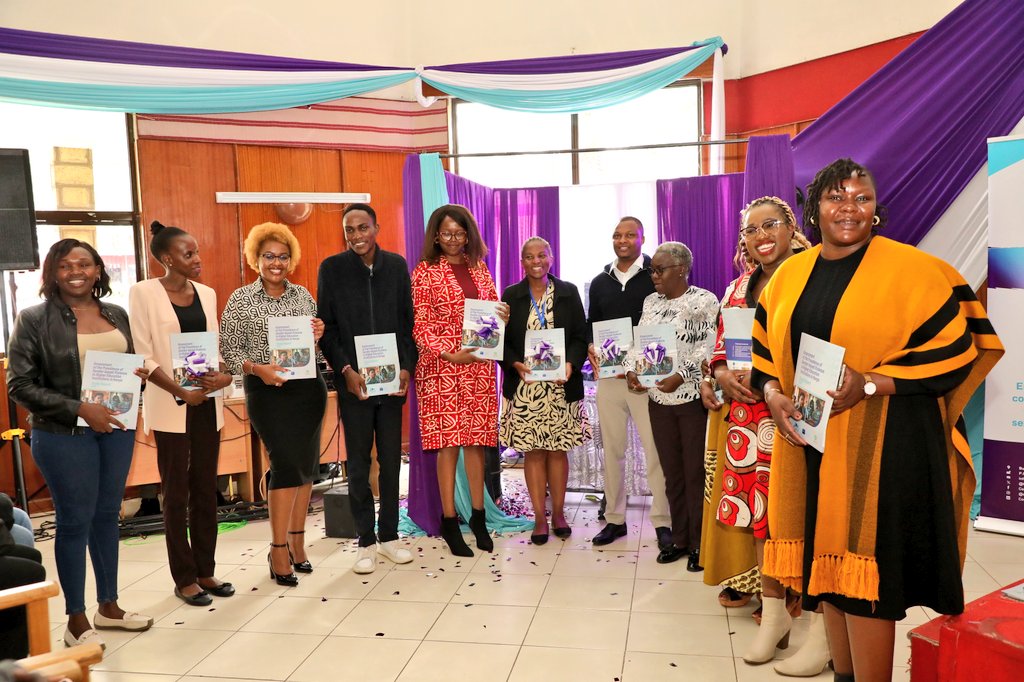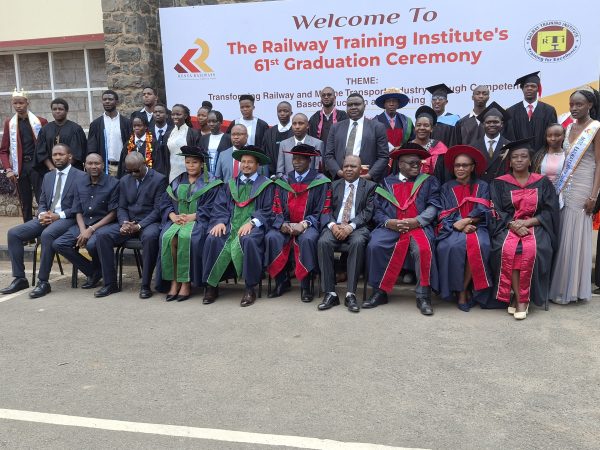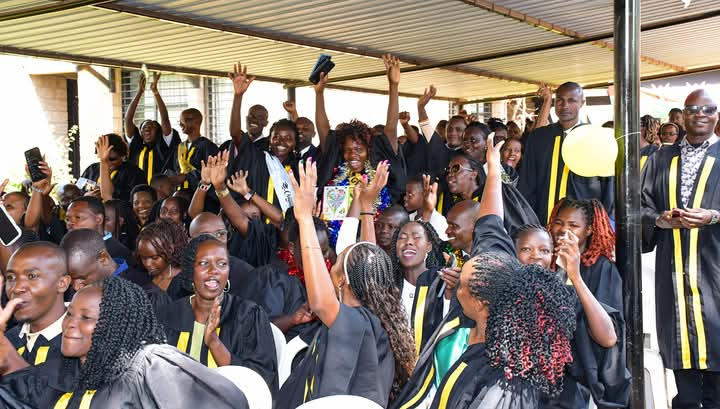By Eddah Waithaka
Coalition against sexual violence today launched the ‘Assessment of the Prevalence of Gender-Based Violence in Higher Institutions of Learning Report’ at Amref International University.
The study across Nairobi, Uasin Gishu, and Kakamega highlights alarming rates of sexual and gender-based violence (GBV) in universities and calls for urgent action to create safer learning environments.
The report shows that 50% of young women and 35% of young men in universities face gender-based violence.
These findings align with Kenya Demographic Health Survey data, showing that 18% of GBV cases involve individuals aged 18 to 24, the primary age group in higher education.
Speaking during an interview, Prof. Tammary Rotich, Deputy Vice Chancellor for Academic and Student Affairs at Amref International University, emphasized the urgency of addressing GBV in universities.
“The evidence is clear. We must intervene at the university level by establishing systems and structures that support a safe campus environment. This includes creating robust reporting mechanisms and ensuring that survivors receive the necessary support,” she said.
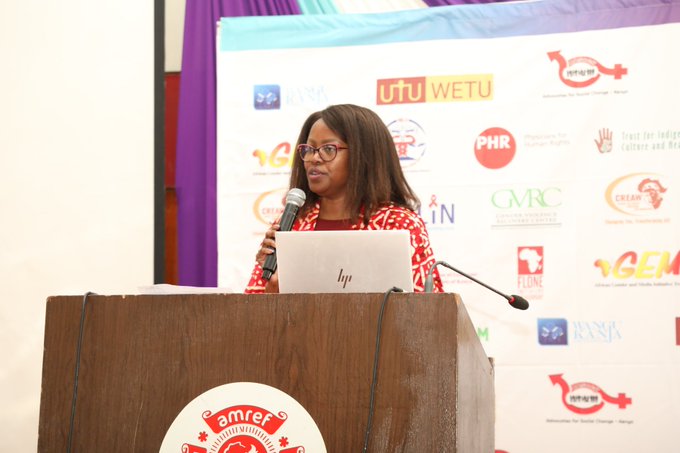
The COVID-19 pandemic exacerbated the issue, with lockdowns and economic hardships leading to increased GBV cases.
Prof. Rotich noted that the pandemic revealed gaps in health services and support systems, leaving many young women and girls in unsafe environments.
Wangu Kanja, Founder and Executive Director of the Wangu Kanja Foundation, stressed the importance of survivor-centered approaches.
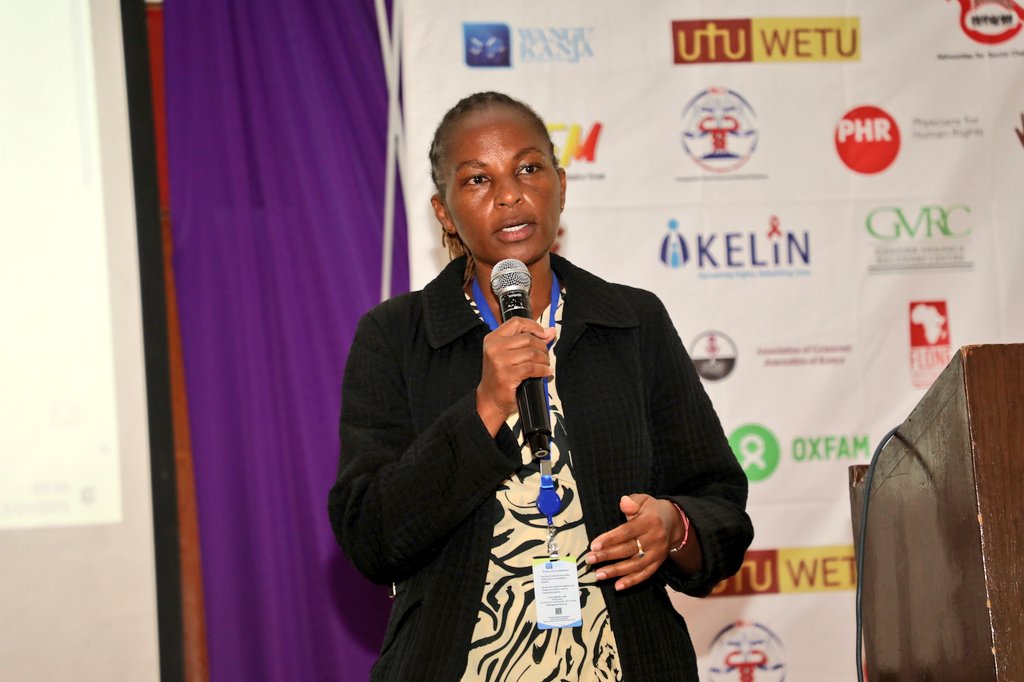
“We must ensure that our interventions do not retraumatize survivors. Victim blaming and duplication of efforts often discourage reporting, leading to depression and other coping mechanisms. This report advocates for policies and mechanisms that prioritize the well-being of survivors,” she said.
Roselyn Mukabana, Head of the Gender-Based Violence Program at Nairobi City County Government, highlighted emerging trends such as technology-facilitated GBV, including cyberbullying and stalking.
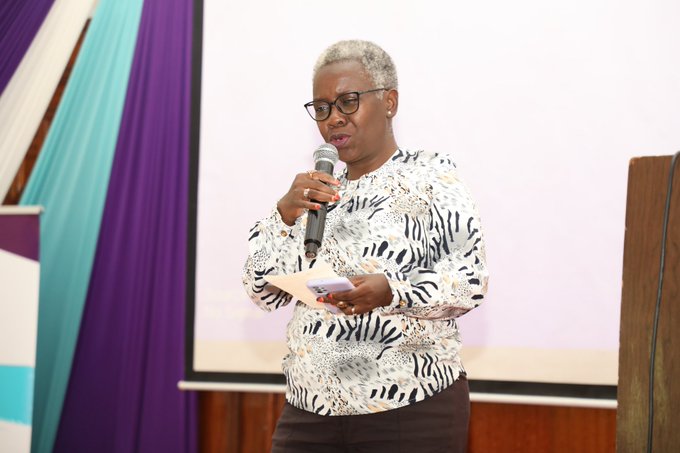
Read More On : https://africawatchnews.co.ke/civil-society-organizations-defend-judicial-independence-amid-rising-attacks/
“Social media has become a new frontier for GBV, and we face challenges in reporting and gathering evidence due to the Data Protection Act. We need innovative solutions to address these issues,” she said.
Nairobi County has implemented several initiatives to combat GBV, including 50 GBV-integrated health facilities, known as Tumaini Clinics, and a network of GBV focal persons across its 17 sub-counties.
The county has also collaborated with religious leaders to develop a GBV Summons Guide, ensuring consistent messaging across faith-based organizations.
Despite these efforts, Mukabana noted that budgetary constraints remain a significant challenge. “With only 5 million shillings allocated to GBV programs, we struggle to meet the needs of survivors, especially in severe cases. We call for increased funding and partnerships to strengthen our response,” she said.
The report underscores the need for comprehensive policies, psychological safety measures, and anonymous reporting platforms within universities.
“Amref International University has implemented policies for safeguarding, diversity, equity, and inclusion, along with grievance mechanisms to effectively address GBV cases. This is the moment to commit. We must ensure that no one has to endure GBV in silence,” Prof. Rotich concluded.
The launch of this report marks a critical step toward creating safer, more inclusive learning environments for all students.
Stakeholders are urged to act swiftly to implement the recommendations and protect the future of Kenya’s youth.
Read More Stories At : https://africawatchnews.co.ke/



